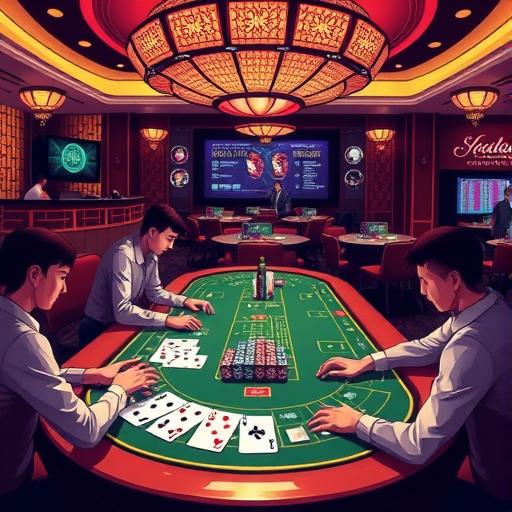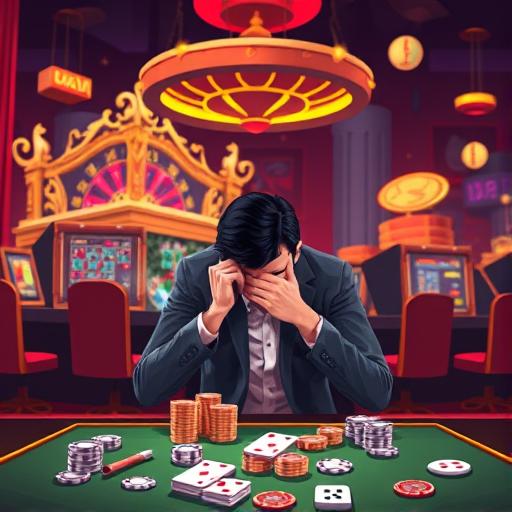Table of Contents
Baccarat and Reckless Gambling
A recent study on Asian casinos highlights a concerning trend: winning streaks in baccarat often lead to more reckless gambling behavior. Players, fueled by initial success and the thrill of the potential jackpot, tend to increase their wagers, believing their luck will continue. This pattern, observed across various Asian casino settings, underscores the importance of responsible gambling practices. The allure of a big win, especially in games like baccarat with its relatively simple rules, can quickly overshadow sound financial decision-making. The high-stakes nature of many Asian casinos, with VIP rooms offering exclusive bonuses and high betting limits, further exacerbates this issue. Players need to understand the inherent risks involved in any form of gambling, whether it’s betting on baccarat, slots, poker, blackjack, roulette, or even the more exotic dragon tiger or mahjong variations found in many Asian casinos. Careful management of bankrolls and setting wager limits are crucial to mitigating potential losses.
The Allure of Asian Casinos
Asian casinos offer a unique blend of excitement and tradition. From the classic casino games like slots, poker, blackjack, baccarat, and roulette to more regionally specific games like dragon tiger and mahjong, the variety is vast. Many casinos also offer live dealer options, enhancing the immersive experience. The opportunity to win a life-changing jackpot, coupled with the vibrant atmosphere and often luxurious VIP amenities, contributes to the strong appeal. The ease of cashout options further fuels the cycle of betting and gambling. However, it’s crucial to remember that the thrill of the gamble should be balanced with responsible financial management. Even with lucrative bonuses and promotional offers, players must always gamble within their means. The potential for significant losses is ever-present, and understanding this risk is paramount before placing a single wager.
Popular Casino Games
Asian casinos offer a diverse range of casino games to cater to every player’s preference. Baccarat remains incredibly popular, known for its relatively simple rules and fast-paced gameplay. Slots, with their exciting themes and potential for huge jackpots, attract a large audience. Poker, with its skill-based element, provides a different kind of challenge. Blackjack, a classic card game requiring strategy and a bit of luck, is another perennial favorite. Roulette, with its spinning wheel and multiple betting options, adds a different layer of excitement. Then there are the more unique Asian-inspired games like dragon tiger, a simple card comparison game, and mahjong, a tile-based game of skill and strategy. The live dealer option adds an extra dimension of realism to many of these games, enhancing the overall casino experience. No matter which game you choose, responsible betting and setting wager limits are crucial for a positive and enjoyable experience.
Key Takeaway
While the thrill of winning is undeniable, responsible gambling practices are crucial to avoid the pitfalls of reckless betting behavior in Asian casinos.
| Game | Average House Edge |
|---|---|
| Baccarat | 1.06% |
| Blackjack | 0.5% – 1% (depending on rules) |
| Roulette (European) | 2.7% |
FAQs
The house edge is the mathematical advantage the casino has over the player in any given game. It represents the long-term percentage of wagers the casino expects to retain.
Set a budget before you start playing, stick to it, and never chase losses. Take breaks regularly and consider using self-exclusion tools if needed.
Live dealer games are online casino games streamed in real-time, featuring a real dealer interacting with players via video link. This provides a more immersive and authentic casino experience.
Dragon Tiger and Mahjong are examples of games more commonly found in Asian casinos, offering unique gameplay and cultural aspects.




